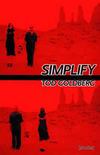There’s an enormous fire raging about three miles from my house in Calabasas, California. Two neighborhoods close to mine, on the north side of the Ventura Freeway, have been evacuated. No one has told us to leave yet, but we’ve already made a short list of what we will take if we have to go… family photos & home movies, important documents, my external hard-drive, my daughter’s three favorite stuffed animals. In the mean time, I can sit here in my home office and watch the smoke moving in our direction…
Firefighters are doing everything they can to halt the fire at the freeway, because if the flames jump to our side, it’s a clear shot to the dry hills of Malibu…which is exactly what happened a few years ago.








